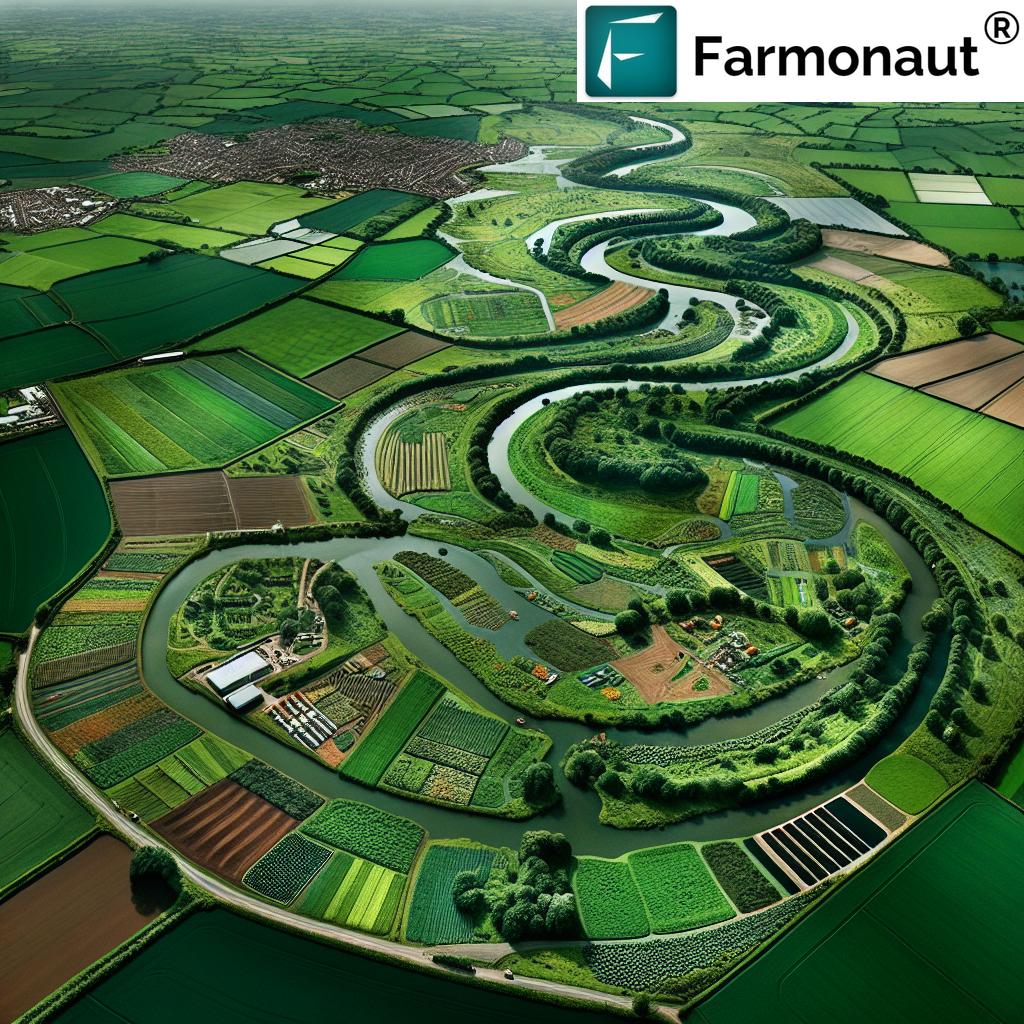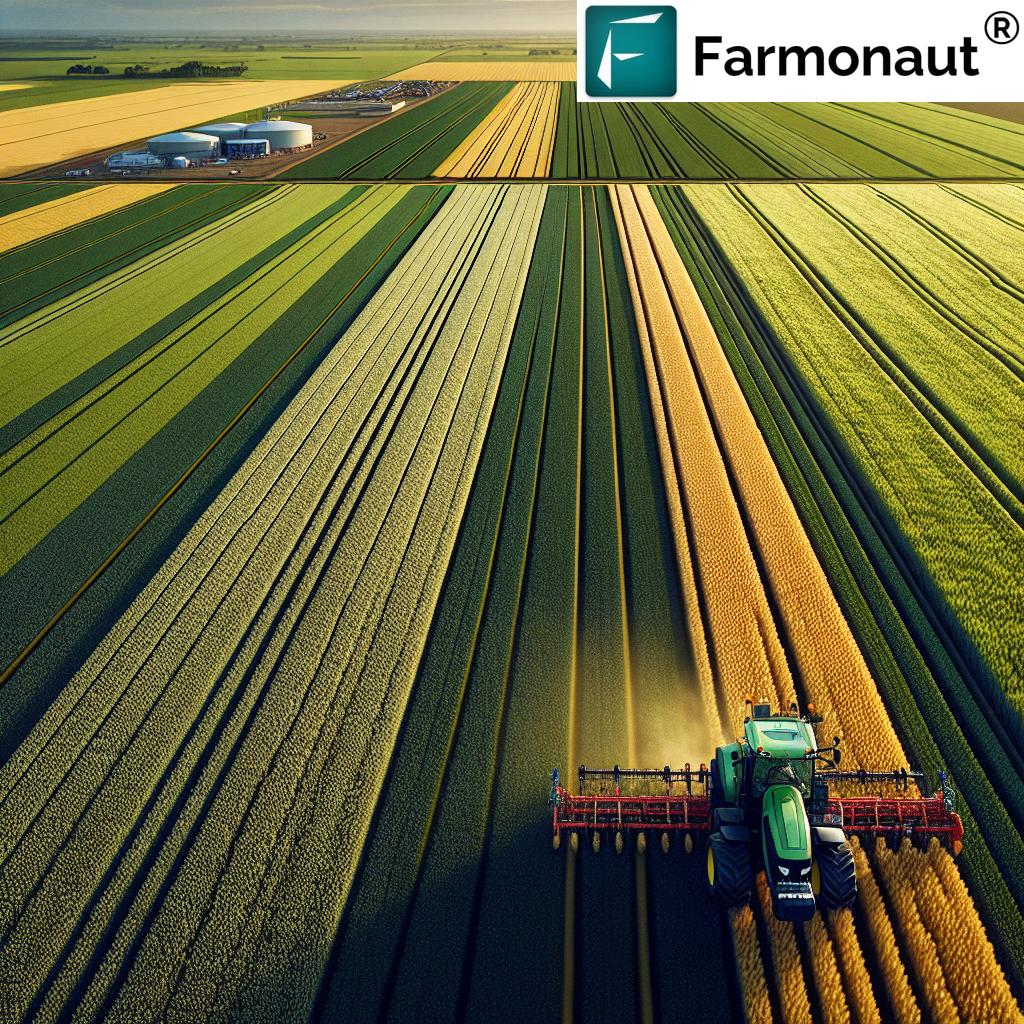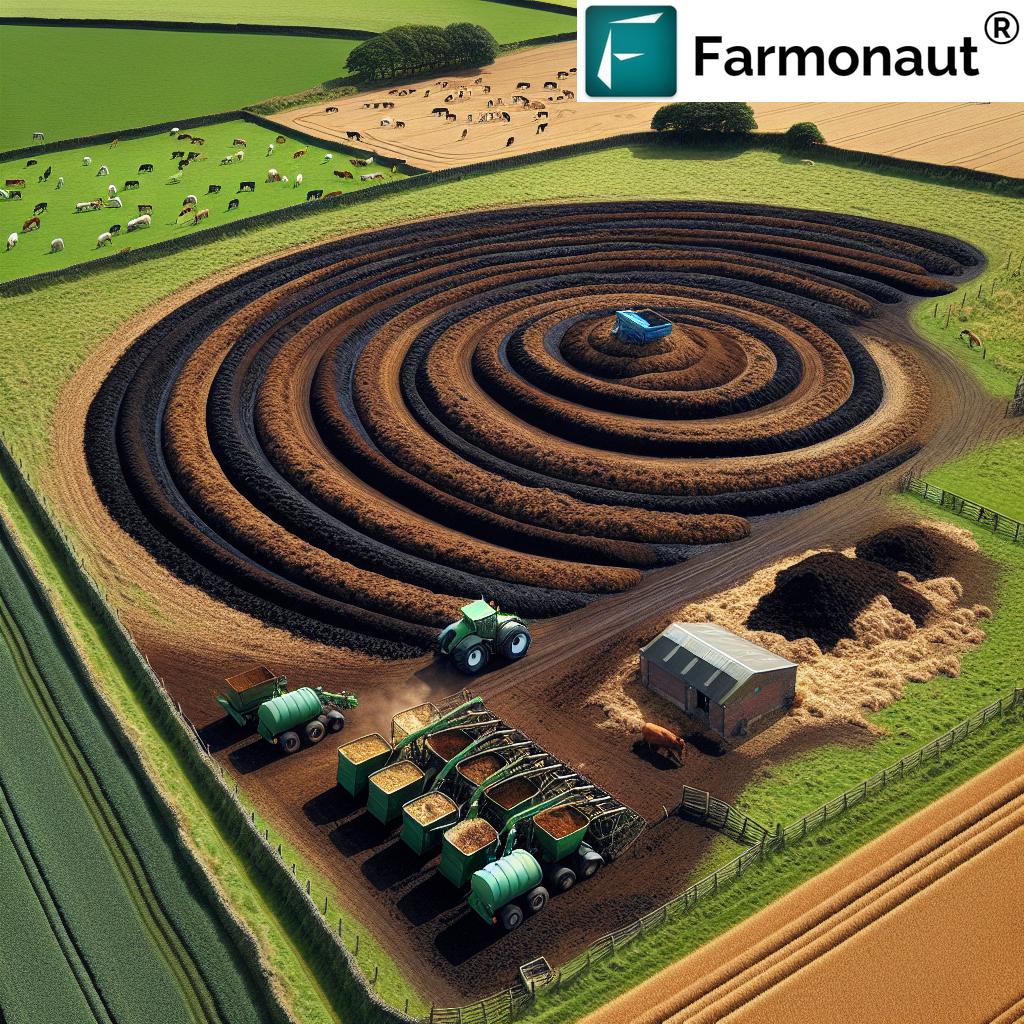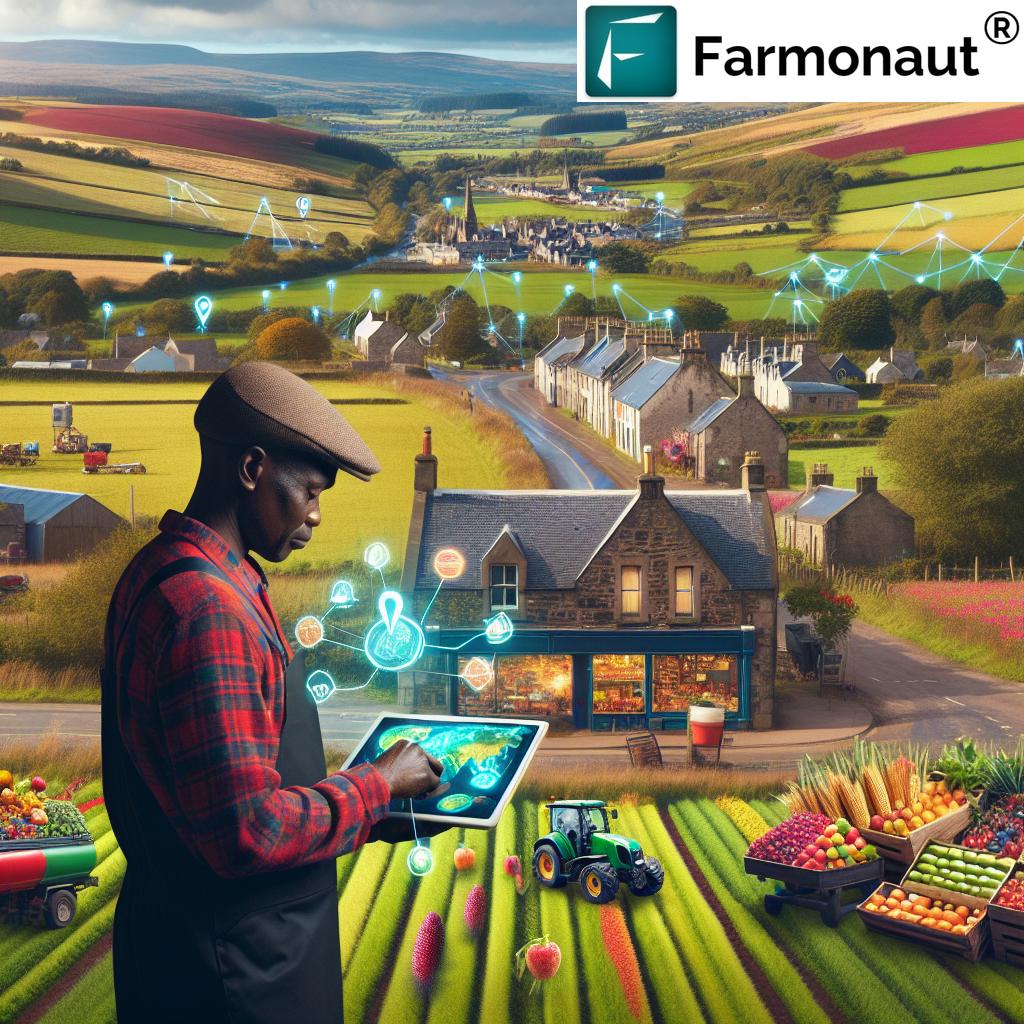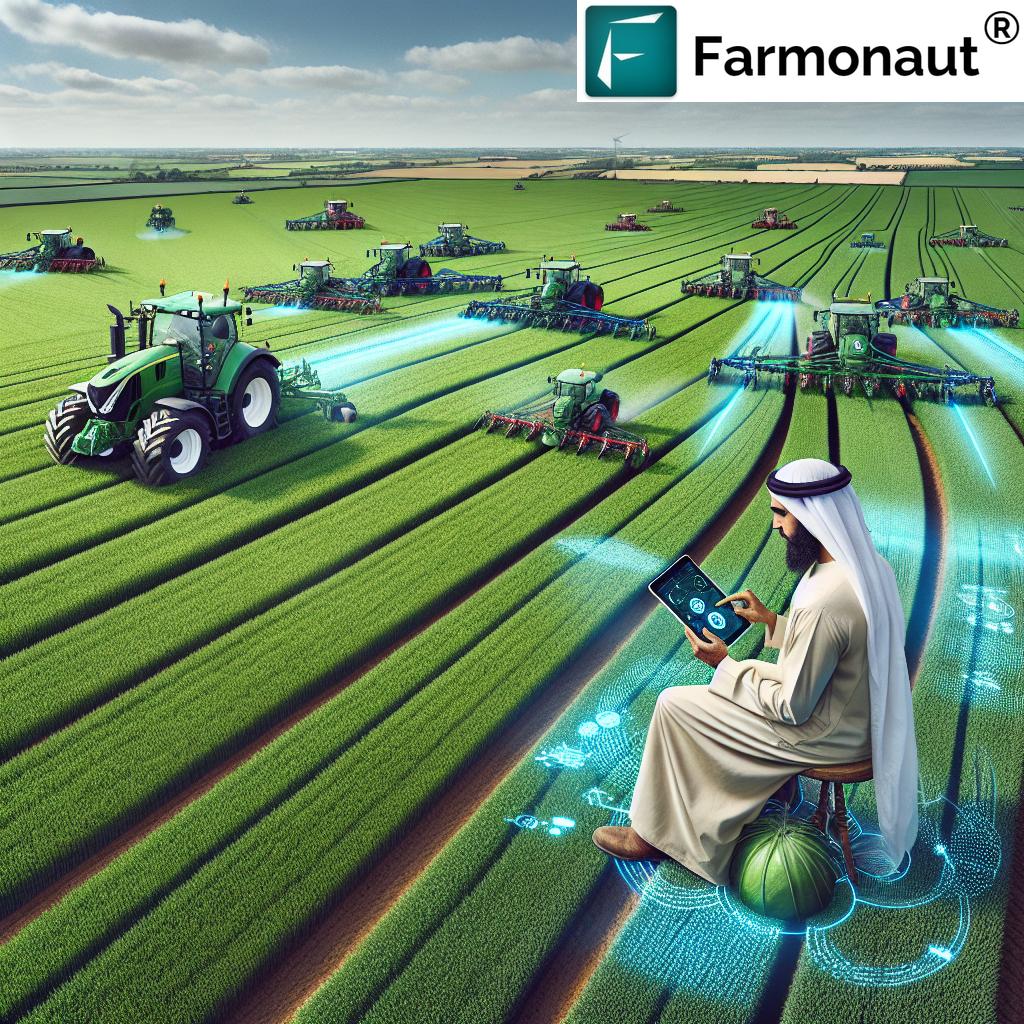UK’s £15 Million Fund: Revolutionizing Food Waste Reduction and Sustainable Farming in England
“The UK’s £15 million fund aims to tackle food waste and promote sustainable farming across England’s agricultural sector.”
We are excited to share news of a groundbreaking initiative that’s set to transform the landscape of food waste reduction and sustainable farming practices in England. The UK government has unveiled a £15 million fund dedicated to revolutionizing how we approach surplus food, agricultural technology, and rural development. This comprehensive strategy not only addresses immediate concerns but also lays the foundation for a more resilient and sustainable future for farmers and communities across the country.
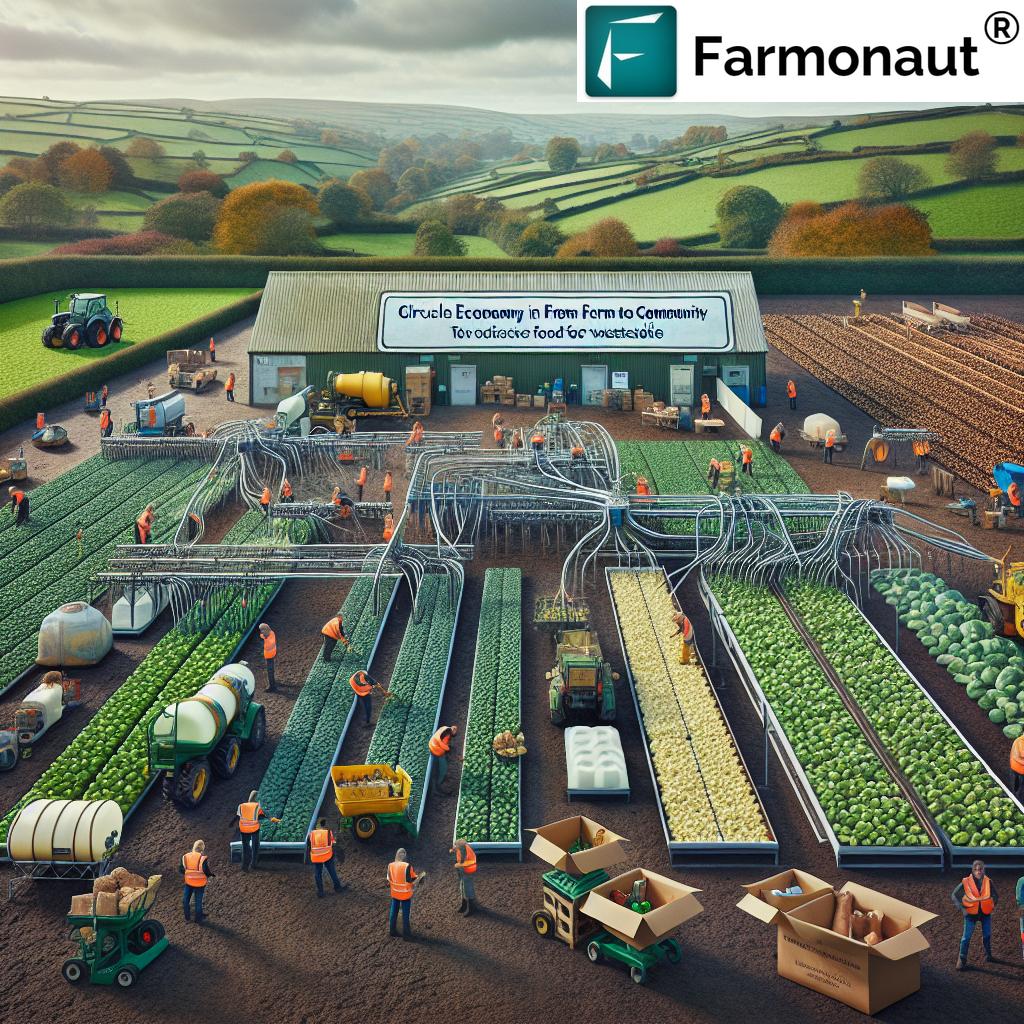
The Urgency of Food Waste Reduction
Every year, an astounding 330,000 tonnes of edible food is either wasted or repurposed for animal feed before it even leaves British farms. This staggering figure underscores the critical need for innovative solutions to combat food waste at its source. The newly announced fund aims to tackle this issue head-on, with a particular focus on the festive season when food waste tends to spike.
As we approach Christmas and New Year celebrations, the importance of connecting farmers with food redistribution charities becomes even more pronounced. Many families struggle to put food on the table during these times, and the initiative seeks to bridge the gap between surplus farm produce and those in need.
Empowering Not-for-Profit Organizations
At the heart of this initiative is the empowerment of not-for-profit organizations involved in food redistribution across England. The Department for Environment, Food, and Rural Affairs (DEFRA) has highlighted a crucial challenge: many charitable organizations often lack the resources to collect surplus food directly from farms. To address this, the new scheme offers grants starting at £20,000 to these organizations, enabling them to play a pivotal role in the food waste reduction ecosystem.
These grants can be utilized for various purposes, including:
- Purchasing essential equipment for collecting and processing bulky food items
- Investing in technologies that enhance collaboration between food donors and redistribution charities
- Staff training to improve IT and food safety skills within the sector
By providing these resources, the government aims to create a more efficient and effective network for food redistribution, ensuring that good food reaches those who need it most while simultaneously helping farmers manage their surplus produce.
Agricultural Technology Solutions: A Game-Changer
In the quest to minimize food waste and promote sustainable farming practices, agricultural technology solutions play a crucial role. The £15 million fund recognizes the importance of precision agriculture techniques and innovative agritech in achieving these goals.
One company at the forefront of this technological revolution is Farmonaut, offering advanced satellite-based farm management solutions. Through their web app, Android app, iOS app, and API, Farmonaut provides farmers with real-time crop health monitoring, AI-based advisory systems, and resource management tools.
These technologies enable farmers to:
- Monitor crop health using satellite imagery
- Receive personalized farm advice through AI-driven systems
- Optimize resource usage, reducing waste and improving efficiency
- Implement precision agriculture techniques for better crop management
By integrating such agricultural technology solutions, farmers can make data-driven decisions that not only reduce waste but also enhance overall farm productivity and sustainability.
Developing a Circular Economy in Agriculture
The UK government’s initiative goes beyond immediate food waste reduction, aiming to foster a circular economy in agriculture. This approach seeks to minimize waste, maximize resource efficiency, and create sustainable growth in the rural economy.
“This initiative supports not-for-profit organizations in collecting and redistributing surplus food from farms to those in need.”
To support this vision, the government has established a Circular Economy Taskforce, bringing together representatives from various sectors. This taskforce will lead the development of a Circular Economy Strategy for England, expected to be published next year. The strategy will outline how different sectors can contribute to reducing waste and promoting sustainability across the agricultural value chain.

Complementary Initiatives and Partnerships
The £15 million fund is not operating in isolation. It complements existing initiatives like the Courtauld Commitment 2030, managed by the environmental NGO WRAP. This commitment aims to create a more sustainable supply chain while reducing food waste in homes, lowering greenhouse gas emissions, and conserving water resources.
By aligning with such initiatives, the government’s fund creates a comprehensive approach to tackling food waste and promoting sustainability across the entire food system.
Impact on Rural Economy Development
The £15 million fund is not just about reducing food waste; it’s also a significant investment in rural economy development. By supporting farmers and creating new opportunities in food redistribution, the initiative is expected to stimulate growth and economic stability in rural areas across England.
Key aspects of rural economy development include:
- Creating new jobs in food redistribution and agricultural technology sectors
- Reducing costs for farmers associated with waste management
- Encouraging innovation in sustainable farming practices
- Fostering partnerships between farms, charities, and technology providers
These efforts align with the government’s broader “Plan for Change,” which seeks to drive economic growth while promoting sustainability and resilience in the agricultural sector.
The Role of Technology in Sustainable Farming
As we delve deeper into the initiative, it’s clear that technology plays a pivotal role in achieving its objectives. Precision agriculture techniques, enabled by advanced technologies, are at the forefront of this revolution in sustainable farming.
Companies like Farmonaut are leading the charge in this area. Their satellite-based crop health monitoring system allows farmers to:
- Track vegetation health using NDVI (Normalized Difference Vegetation Index)
- Monitor soil moisture levels
- Make informed decisions about irrigation and fertilizer usage
- Implement targeted pest management strategies
These technologies not only help reduce waste but also optimize resource use, leading to more sustainable and efficient farming practices. For more information on how to leverage these technologies, check out Farmonaut’s API Developer Docs.
From Farm to Food Bank: Streamlining the Process
One of the key challenges addressed by the £15 million fund is the logistical gap between farms with surplus produce and food banks in need. The initiative aims to streamline this process through various means:
- Providing grants for essential equipment like balers and hoppers
- Investing in technology to improve communication between food donors and charities
- Supporting the development of efficient transport and storage solutions
By focusing on these areas, the government hopes to create a more efficient “farm to food bank” pipeline, ensuring that surplus food quickly reaches those who need it most.
Addressing Seasonal Challenges
The timing of this initiative is particularly significant as it addresses the seasonal challenges faced by both farmers and those in need. During the festive season, certain crops like brussels sprouts and potatoes are at risk of going to waste due to overproduction or market fluctuations.
By providing support for food redistribution during this critical period, the fund ensures that:
- Seasonal produce doesn’t go to waste
- Families in need have access to nutritious food during the holidays
- Farmers can better manage their surplus without incurring additional costs
This seasonal focus demonstrates the government’s commitment to tackling food waste challenges throughout the year, adapting to the changing needs of both producers and consumers.
The Future of Sustainable Agriculture in England
As we look to the future, the £15 million fund represents a significant step towards a more sustainable and resilient agricultural sector in England. By combining food waste reduction initiatives with investments in agricultural technology and rural development, the government is laying the groundwork for long-term positive change.
Key areas of focus for the future include:
- Continued investment in agritech innovation
- Expansion of food redistribution networks
- Development of more sustainable farming practices
- Strengthening the circular economy in agriculture
These efforts will not only benefit farmers and those in need but will also contribute to broader environmental goals by reducing waste and promoting more efficient use of resources.
Key Components of UK’s £15 Million Food Waste Reduction Initiative
| Initiative Component | Description | Estimated Impact |
|---|---|---|
| Food Redistribution Grants | Grants starting at £20,000 for not-for-profit organizations to collect and redistribute surplus food from farms | Potential reduction of 50,000 tonnes of food waste annually |
| Agricultural Technology Solutions | Investment in precision agriculture techniques and agritech innovations | Projected 15% increase in farm efficiency across participating farms |
| Circular Economy Development | Creation of a Circular Economy Strategy for England’s agricultural sector | Expected 20% reduction in overall agricultural waste by 2025 |
| Rural Economy Support | Initiatives to stimulate growth and economic stability in rural areas | Estimated creation of 1,000 new jobs in food redistribution and agritech sectors |
| Seasonal Waste Reduction | Focused efforts to reduce waste during peak production periods, especially holidays | Projected 30% reduction in seasonal crop waste (e.g., brussels sprouts, potatoes) |
Farmonaut: Empowering Farmers with Advanced Technology
As we discuss the role of technology in sustainable farming, it’s worth highlighting the contributions of companies like Farmonaut. Their innovative platform offers a range of tools that align perfectly with the goals of the UK’s food waste reduction initiative.
Farmonaut’s key features include:
- Satellite-based crop health monitoring
- AI-driven personalized farm advisory system (Jeevn AI)
- Blockchain-based product traceability
- Fleet and resource management tools
- Carbon footprint tracking
These technologies empower farmers to make data-driven decisions, optimize resource use, and minimize waste. By leveraging such advanced solutions, farmers can contribute significantly to the goals of food waste reduction and sustainable agriculture.
FAQ Section
Q: What is the main goal of the UK’s £15 million fund?
A: The primary aim is to reduce food waste, support sustainable farming practices, and promote a circular economy in agriculture across England.
Q: Who can apply for the grants under this initiative?
A: Not-for-profit organizations involved in food redistribution across England are eligible to apply for grants starting at £20,000.
Q: How does this initiative address seasonal food waste?
A: The fund focuses on critical periods like the festive season when crops such as brussels sprouts and potatoes are at risk of going to waste, ensuring their redistribution to those in need.
Q: What role does technology play in this initiative?
A: Agricultural technology solutions, including precision agriculture techniques and agritech innovations, are crucial in optimizing farm efficiency and reducing waste.
Q: How does this fund contribute to rural economy development?
A: By supporting farmers, creating jobs in food redistribution, and encouraging innovation in sustainable farming practices, the initiative aims to stimulate growth and economic stability in rural areas.
Conclusion: A Step Towards a Sustainable Future
The UK’s £15 million fund for food waste reduction and sustainable farming represents a significant step towards creating a more resilient and environmentally friendly agricultural sector in England. By addressing immediate challenges like food redistribution while also investing in long-term solutions through agricultural technology and circular economy initiatives, the government is setting the stage for a transformative change in how we approach food production and consumption.
As we move forward, the success of this initiative will depend on the collaborative efforts of farmers, charities, technology providers, and government agencies. With continued investment in innovative solutions and a commitment to sustainable practices, we can look forward to a future where food waste is minimized, farm efficiency is maximized, and every member of society has access to nutritious food.
For those interested in leveraging technology to support these goals, explore Farmonaut’s offerings:
Together, we can build a more sustainable and food-secure future for England and beyond.






